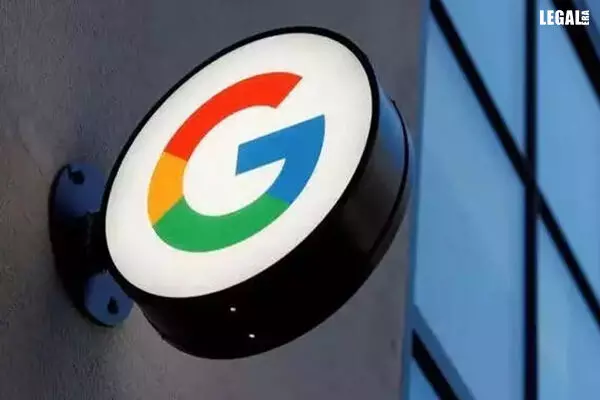- Home
- News
- Articles+
- Aerospace
- Artificial Intelligence
- Agriculture
- Alternate Dispute Resolution
- Arbitration & Mediation
- Banking and Finance
- Bankruptcy
- Book Review
- Bribery & Corruption
- Commercial Litigation
- Competition Law
- Conference Reports
- Consumer Products
- Contract
- Corporate Governance
- Corporate Law
- Covid-19
- Cryptocurrency
- Cybersecurity
- Data Protection
- Defence
- Digital Economy
- E-commerce
- Employment Law
- Energy and Natural Resources
- Entertainment and Sports Law
- Environmental Law
- Environmental, Social, and Governance
- Foreign Direct Investment
- Food and Beverage
- Gaming
- Health Care
- IBC Diaries
- In Focus
- Inclusion & Diversity
- Insurance Law
- Intellectual Property
- International Law
- IP & Tech Era
- Know the Law
- Labour Laws
- Law & Policy and Regulation
- Litigation
- Litigation Funding
- Manufacturing
- Mergers & Acquisitions
- NFTs
- Privacy
- Private Equity
- Project Finance
- Real Estate
- Risk and Compliance
- Student Corner
- Take On Board
- Tax
- Technology Media and Telecom
- Tributes
- Viewpoint
- Zoom In
- Law Firms
- In-House
- Rankings
- E-Magazine
- Legal Era TV
- Events
- Middle East
- Africa
- News
- Articles
- Aerospace
- Artificial Intelligence
- Agriculture
- Alternate Dispute Resolution
- Arbitration & Mediation
- Banking and Finance
- Bankruptcy
- Book Review
- Bribery & Corruption
- Commercial Litigation
- Competition Law
- Conference Reports
- Consumer Products
- Contract
- Corporate Governance
- Corporate Law
- Covid-19
- Cryptocurrency
- Cybersecurity
- Data Protection
- Defence
- Digital Economy
- E-commerce
- Employment Law
- Energy and Natural Resources
- Entertainment and Sports Law
- Environmental Law
- Environmental, Social, and Governance
- Foreign Direct Investment
- Food and Beverage
- Gaming
- Health Care
- IBC Diaries
- In Focus
- Inclusion & Diversity
- Insurance Law
- Intellectual Property
- International Law
- IP & Tech Era
- Know the Law
- Labour Laws
- Law & Policy and Regulation
- Litigation
- Litigation Funding
- Manufacturing
- Mergers & Acquisitions
- NFTs
- Privacy
- Private Equity
- Project Finance
- Real Estate
- Risk and Compliance
- Student Corner
- Take On Board
- Tax
- Technology Media and Telecom
- Tributes
- Viewpoint
- Zoom In
- Law Firms
- In-House
- Rankings
- E-Magazine
- Legal Era TV
- Events
- Middle East
- Africa
U.S. Jury Ordered Google to Pay $32.5 Million to Sonos in Patent Case

U.S. Jury Ordered Google to Pay $32.5 Million to Sonos in Patent Case
The U.S. Federal Court, at San Francisco ordered Alphabet Inc’s Google to pay US$32.5 million in damages for infringing one of smart-speaker maker Sonos Inc’s patents in its wireless audio devices.
The litigation is part of an ongoing intellectual property dispute between the former collaborators that includes other lawsuits in the US, Canada, France, Germany and the Netherlands.
The companies had previously collaborated to integrate California-based Google’s music streaming service with Mountain View-based Sonos products.
The case dates back to 2020, when Sonos first sued Google for patent infringement in Los Angeles and at the U.S. International Trade Commission, alleging the tech giant of replicating its technology during their collaboration in devices including Google Home and Chromecast Audio.
In 2022, Sonos won a limited import ban on some Google devices from the ITC, following which Google has appealed.
Google retaliated with its own patent lawsuits in California and at the ITC, accusing Sonos of incorporating the tech company’s technology into its smart speakers.
Sonos condemned Google’s lawsuits by vociferously calling it to be ‘intimidation tactic’ to ‘grind down a smaller competitor.’
Santa Barbara, California-based Sonos lost nearly one-fifth of its market valuation earlier this month after cutting its revenue forecast.
The jury noted that Google infringed one of Sonos two patents at issue in the trial. Sonos had originally asked for $90 million in damages from the Court, which Google claimed Sonos had decreased from $3 billion after U.S. District Judge William Alsup consolidated the case.
Google spokesperson commented on the case stating that, it was a ‘narrow dispute about some very specific features that are not commonly used,’ and that the company was considering its next steps. Google also defended by stating that it has ‘always developed technology independently and competed on the merit of our ideas.’
A Sonos spokesperson while welcoming the verdict said that the verdict ‘re-affirms that Google is a serial infringer of our patent portfolio.’



